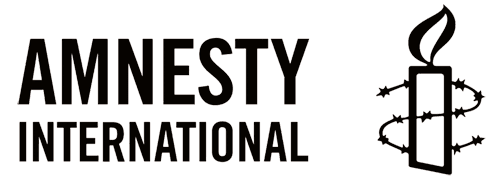Tshetshenian homomiesten vainoista raportoinutta lehteä Novaja Gazetaa uhataan. Vaadi viranomaisia toimimaan. Vastaa VETOAN LEHTI NIMESI numeroon 16499. Viesti maksaa 90snt.
On 1 April, Novaya Gazeta reported that over a hundred men believed to be gay had been recently abducted, as part of a coordinated campaign. Reaction from Chechen officials to this information has varied from denial to thinly veiled threats. On 3 April, 15,000 people including Chechen elders, public opinion leaders and Muslim theologians attended an assembly at the central mosque in the Chechen capital Grozny. At the assembly, Adam Shakhidov, a Counsellor to the Head of Chechnya, publicly accused the newspaper of lies and described its staff members as “the enemies of our faith and homeland”. A resolution adopted at the meeting stated, amongst other things: “Considering that the Chechen society’s age-long foundations have been insulted, as have been Chechen men’s dignity as well as our faith, we promise that the real instigators [of this] will face retaliation, irrespective of where and who they are, however long this takes”. A recording of Adam Shakhidov’s speech and of the assembly has been widely circulated on local state-controlled television and through social media. Following the threats to Novaya Gazeta, the independent radio station Ekho Moskvy, which came out in support of the threatened staff, has also been threatened by the Mufti of Chechnya, Salakh Mezhiev.
Public calls for retaliation made by influential people in Chechnya in the past have on many occasions been followed by attacks on the individuals concerned, including killings. Those who issued the threats have enjoyed impunity, and the killings and other incidents of violence have never been fully and effectively investigated. Among the victims of such attacks were Novaya Gazeta’s journalist Anna Politkovskaya, celebrated for her reporting on Chechnya, who was murdered in 2006, as well as human rights defender Natalya Estemirova who had been a frequent contributor to Novaya Gazeta, and who was murdered in 2009.
On 1 April, the Russian independent newspaper Novaya Gazeta reported that over a hundred of men believed to be gay had been recently abducted, as part of a coordinated campaign. According to confidential credible sources, the abducted men were tortured and otherwise ill-treated, and forced to disclose other LGBTI individuals known to them. Novaya Gazeta was able to verify that at least three men had been killed by their captors, but its sources claimed that there had been many more killings, including by family members to whom some of these men were returned. On 4 April, Novaya Gazeta published several testimonies of eyewitnesses revealing details of secret detention sites in Chechnya where abducted gay men are held and tortured. (For more information please see https://www.amnesty.org/en/get-involved/take-action/chechnya-stop-abducting-and-killing-gay-men/)
Journalists and human rights defenders who reported human rights violations in Chechnya have on numerous occasions faced threats and physical violence. These are rarely if ever effectively investigated. On 9 March 2016, two members of the human rights organization Joint Mobile Group (JMG), along with their driver and six journalists from Russian, Norwegian and Swedish media, were assaulted by a group of armed masked men suspected of being local law enforcement officials while travelling from North Ossetia to Chechnya. Two hours later, the JMG’s office in Ingushetia was ransacked by a mob, and on 16 March 2016, the JMG’s leader Igor Kalyapin was asked to leave a hotel in Grozny by the manager because he “did not love” the Chechen leader Ramzan Kadyrov. Igor Kalyapin was then punched and pelted with eggs, cakes, flour and disinfectant by an angry mob. None of these incidents were effectively investigated. (See https://www.amnesty.org/en/documents/eur46/3643/2016/en/ as well as https://www.amnesty.org/en/documents/eur46/1802/2015/en/).
On 5 September 2016, Zhalaudi Geriev, a contributor to the authoritative news resource dedicated to the Caucasus region, Caucasian Knot, known for his criticism of the leadership of Chechnya, was sentenced to three years’ imprisonment by the Shali District Court of Chechnya for allegedly possessing 167 grams of marijuana. At his trial he withdrew his “confession” to the drugs charge, saying that three men in plain clothes had detained him on 16 April, forced him into a car and driven him to a forest outside Grozny, where he was tortured before being handed over to law enforcement officers who forced him to “confess”.
On 6 January 2017, Magomed Daudov, speaker of the Chechen parliament and one of the most powerful Chechen officials, used his Instagram account to threaten Grigory Shvedov, the editor-in-chief of Caucasian Knot. This incident was not effectively investigated. (See https://www.amnesty.org/en/documents/eur46/5442/2017/en/). According to the Committee for Projection of Journalists, 56 journalists have been killed in Russia since 1992.

